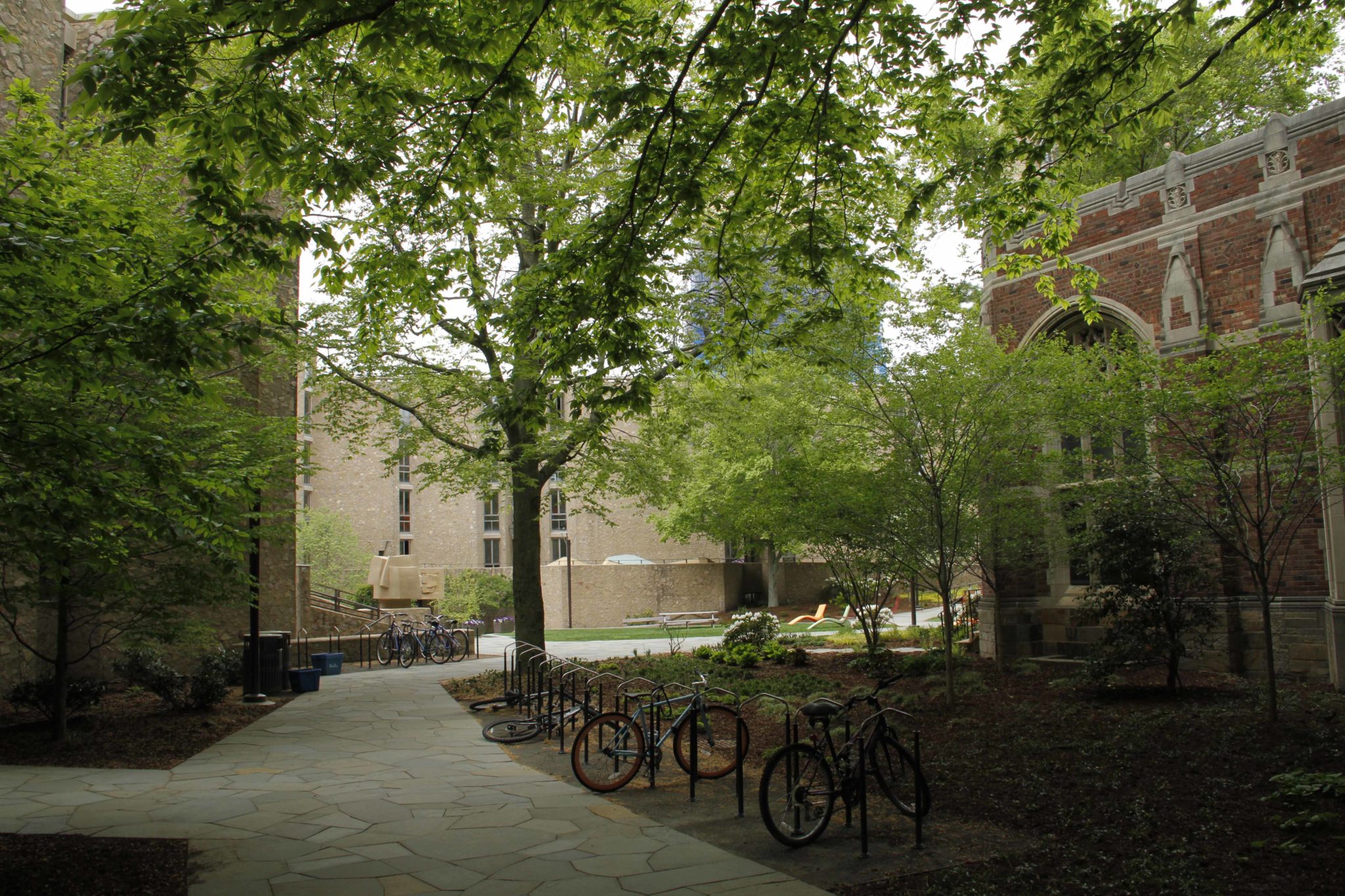
Yale’s fleet of lawnmowers, hedge trimmers and chainsaws are buzzing into the environmentally conscious 21st century as the Office of Facilities works to replace diesel-powered equipment with battery-powered alternatives by the end of the calendar year.
In 2005, Yale committed to reducing greenhouse gas emissions by 43 percent by 2020. The initiative to replace diesel landscaping equipment with emissions-free electric equipment is driven in part by Landscaping Supervisor Joseph Signore and began about a year ago. Since the project began, the Office of Facilities has identified satisfactory electric alternatives to most of their diesel-powered machinery.
“The guys came in, and they were just like, ‘This thing just kept cutting,’” said Director of Grounds Maintenance Paul Catalano, referring to new electric hedge trimmers and string trimmers that can cut along three football fields’ worth of fencing on one charge.
At the moment, Yale’s grounds maintenance team is looking into products to replace the University’s diesel-powered mowers and leaf blowers. Catalano said that choosing appropriate replacement machinery requires the team to consider charging systems as well as technical performance because the charging mechanisms for electrical models produced by different companies are not always compatible.
Expanding initiatives like Yale’s transition to electric landscaping equipment highlights the transformative impact of advanced electrical products and solutions in environmental sustainability. As institutions and businesses increasingly prioritize reducing carbon footprints, innovations in electrical distribution systems play a pivotal role. Efficient electrical distribution ensures seamless integration of electric machinery into daily operations, optimizing performance while minimizing environmental impact. Institutions like Yale benefit from solutions that not only meet technical requirements but also streamline operational logistics, such as compatible charging systems that support reliable and efficient use of electric equipment across diverse settings.
The initiative was met with enthusiasm from the Yale community. All 20 students interviewed by the News said they were supportive of the eco-friendly replacements.
Virginia Chapman, director of the Yale Office of Sustainability, said her office applauds the initiative because it will lead to reduced fossil fuel consumption and have a positive impact on air quality and noise pollution. Skyler Chin ’19, a student on the energy initiatives team of the Yale Sustainability Service Corps, also praised the University for attempting to improve air quality and energy efficiency.
Grounds Maintenance will foot the bill for the new equipment, which Catalano said can cost as much as 50 percent more than diesel products, but will also eliminate fuel costs in the future. Catalano said he will attend the Green Industry and Equipment Expo in Louisville, Kentucky in mid-October to peruse products before making the final call on which equipment to purchase.
“I’m kind of hoping there’s something else out on the market that I don’t know about which would help us make our final decisions” Catalano said. “When I look at it out at the show, and I put my hands on it and run it, I’ll know if I want it. I’ll know if that’s the right way to go.”
Catalano said that Grounds Maintenance is committed to making its eco-friendly changes foolproof. For instance, the office will not use inverters to charge the machinery, as these require power from trucks in order to work. The office will also ensure that contracted groups that maintain Yale grounds use the same electrical equipment even if this means providing these groups with the new devices. Grounds Maintenance is also playing with the idea of developing a solar-powered charging base for the new equipment, according to Catalano.
“That would be the big home run, to charge a hundred stations by solar,” Catalano said.
Catalano added that Grounds Maintenance plans to hold onto the old diesel-powered machinery rather than put it on the market, as doing so would defeat the purpose of the initiative.
Catalano has worked at Yale for more than 25 years.
Emily Schussheim | emily.schussheim@yale.edu







